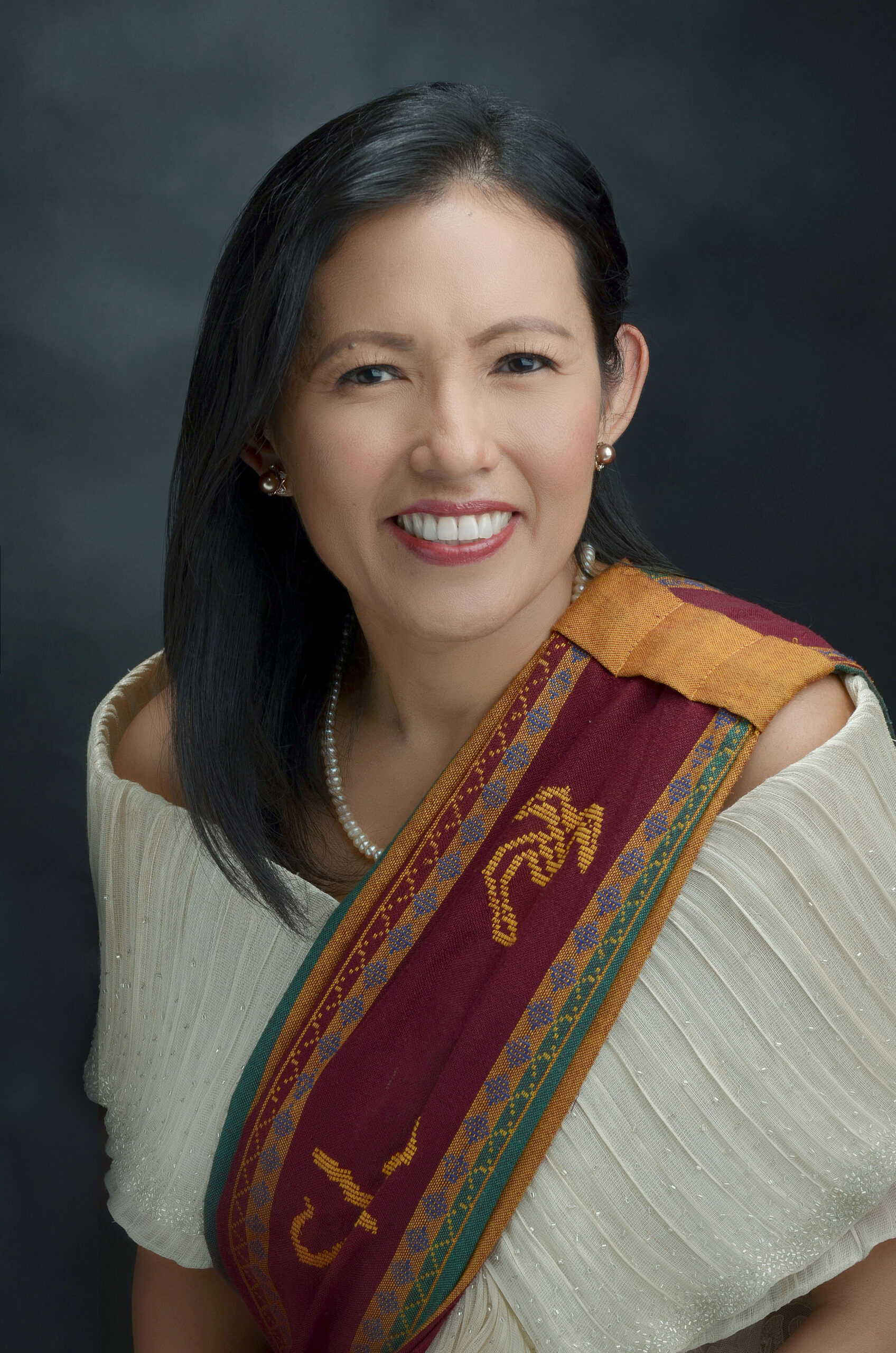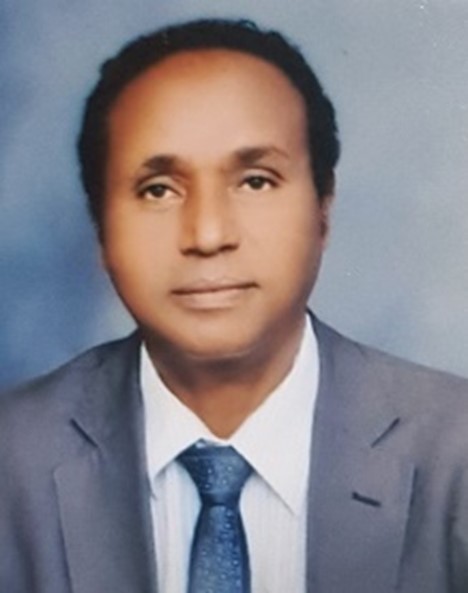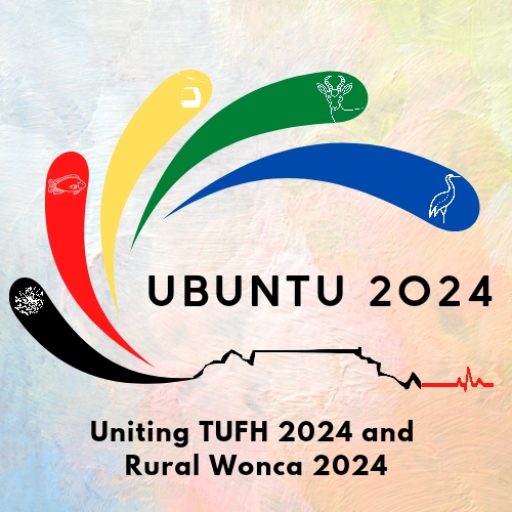KEYNOTE SPEAKERS

Dr. Meredith del Pilar-Labarda
Biosketch
Professor of Medicine at University of the Philippines Manila School of Health Sciences
Dr. Meredith del Pilar-Labarda is a Professor of Medicine and the former Chairperson of the Department of Medicine at the University of the Philippines Manila School of Health Sciences (UPM-SHS), an innovative school known for its community-oriented stepladder health professions education curriculum. Currently, she is the chairperson and coordinator of the school’s research unit. She is also the lead for Social Innovation in Health Initiative (SIHI) Global Network Secretariat, as well as lead for SIHI Philippines Research Hub, a program under the Institute of Clinical Epidemiology of the UP Manila National Institutes of Health. SIHI is a global network of passionate individuals, organizations and institutions advocating for social innovation in health and advancing research in social innovation launched by the Special Programme for Research and Training in Tropical Diseases (TDR). In partnership with the Philippine Council for Health Research and Development (PCHRD), she has also led the national crowdsourcing open call for the Gelia Castillo Award for Research on Social Innovations in Health (GCARSIH), which is implemented in the country every two years. Further, she has also led several TDR-funded and supported research projects such as the Community Engagement Self-Monitoring Approach for Social Innovations and Gender Intersectionality study.
She has also actively participated in several World Health Organization initiatives such as serving as the Lead Technical Expert Evaluator in Human Resources, Risk Communication and Community Engagement for the Joint External Evaluation (JEE) of International Health Regulations (IHR) Core Capacities. In 2023 she also served as a Temporary Adviser for Member States Consultation to draft the Regional Innovation Strategy in the Western Pacific region. As a Doctor of Social Development and the school’s lead coordinator for health leadership and governance programs, she has also been active in establishing partnerships with government and non-government organizations in co-designing training modules, providing capacity strengthening trainings and coaching for local chief executives, municipal health officers, provincial health teams and other stakeholders in the local health ecosystem for the implementation of the Universal Health Care Law. Her advocacies, work engagements and research interests include health and social development, social innovations, transformative health leadership and governance, community engagement, local health systems strengthening, disaster and resilience, adolescent sexual reproductive health, intersectional gender research, youth capacity building, health and nutrition, community mental health and wellbeing and transformative health professions education.
Keynote Abstract
Social Innovations in Health: Catalysts for Connecting People, Place, and Policy
Towards Community Wellness
link between shifting social dynamics and improvement in health. Social innovations create more sustainable and accountable services by allowing end-users and other stakeholders to actively participate in addressing key health needs and problems. Engaging these stakeholders also results in solutions that are sensitive to the sociocultural, geographic, and economic contexts of their communities. Thus, leveraging social innovations in health as a catalyst to connect people, place and policy towards holistic community wellness is the way forward.
Tuesday 10 September 2024, 13:30 – 14: 30 @ Main Hall

Dr. Malin Fors
Biosketch
Associate Professor at the Arctic University of Norway
Malin Fors is a psychologist and psychoanalyst residing in Hammerfest, Norway – the world’s northernmost town. Her 2018 paper on “geographical narcissism” has been cited by readers in many countries and disciplines. She is Associate Professor at UiT, the Arctic University of Norway, where she teaches medical students about issues of power and cultural safety. Dr Fors has been a guest lecturer in psychology for numerous universities in Scandinavia and has run clinical workshops in several US conferences. For 16 years, Dr. Fors has served at the local psychiatric outpatient clinic and in private practice in Hammerfest. Dr. Fors is the author of A Grammar of Power in Psychotherapy (APA Press, 2018), recently translated into Swedish, for which she won the Johanna Tabin Award from the Society for Psychoanalysis and Psychoanalytic Psychology. She has appeared in a Master Clinician DVD in the APA Psychotherapy Series and was an Erikson Scholar at the Austen Riggs Center in Stockbridge, Massachusetts, in 2020. She received the Research Award from Finnmark Hospital Trust, Norway, in 2021, and was awarded the Psychotherapy Literature Stipend by the Stockholm Academy for Psychotherapy Education (SAPU) in 2022.
Keynote Abstract
Geographical Narcissism
Geographical narcissism is a subtle, often unconscious, devaluation of rural knowledge, conventions, and subjectivity. Dr. Fors delineates how urban-identified populations may defensively disown the realities of our vulnerability to nature, distance, and weather, and tend to deny our social interdependence and non-anonymity. In positing an urban “omphalos syndrome” and the geographical narcissism that goes with it, she countermaps rural medicine and celebrates rural strengths. These include acting with clinical courage and observing “potato ethics” – a metaphor that she has suggested for the strong ethical values underlying the reality that often, in rural healthcare, one’s own services are the patient’s only option. She explores some psychological effects of rural microtraumas and construes urbanity as a seldom-addressed privilege, showing how rurality can be incorporated into an intersectional argument about power and social justice.
Wednesday 11 September 2024, 08:30 – 09: 30 @ Main Hall

Biosketch
Full Professor at the University of KwaZulu-Natal
Shenuka Singh is a Full Professor in the Discipline of Dentistry at the University of KwaZulu-Natal (UKZN), South Africa. She has two doctoral degrees: Ph.D. (Clinical and Research Ethics) (Stell); and Ph.D. (UWC) in the field of dental public health. She is an appointed member of the National Health Research Ethics Council (NHREC) in South Africa (2020-2023) and she chairs the Norms and Standards Committee within NHREC. Prof Singh was a Deputy Chair for the Biomedical Research Ethics Committee at UKZN (2020-2022) and a member of the Human Sciences Research Council’s Research Ethics Committee (2019-to date). From an international perspective, she was invited to be part of a World Health Organization joint working group (Regulation and Safety Unit and Health Ethics & Governance Unit) to develop a tool for the benchmarking of research ethics oversight in 2021. She is also a member of the Ethics in Dental Research Committee at the International Association of Dental Research. She is actively involved in research and postgraduate supervision and has presented papers at local and international conferences (including invitations as a keynote speaker). Prof Singh was a recipient of the 2018 College of Health Sciences Teaching Excellence Award, UKZN (in the category: Outstanding Contribution to Teaching) and was also awarded the UKZN Certificate of Excellence in Teaching (2018).
Keynote Abstract
Promoting an interprofessional and collaborative approach to health service delivery: the need for continuing educational support for the health care provider
Access to quality health care services that are appropriate and responsive to unmet individual and community needs is a fundamental human right, yet the current delivery of health services remains somewhat disjointed, despite efforts to ensure an integrated approach to health care. This calls for more cohesion within the health system, which could be achieved through an interprofessional and collaborative approach. The need for such an approach to health care provision becomes more critical in the face of resource-constrained health settings. given its potential to address issues such as staff and skills shortages, sharing of resources, and optimizing streamlined service delivery, yet the implementation of an interprofessional and collaborative approach is riddled with challenges. Part of these challenges includes health care providers’ competence, level of training, preparedness, and willingness to work within these teams. Additionally, the siloed approach to undergraduate training means that the health care provider entering the health system is largely ill-equipped and under-prepared for such a paradigm shift in health care delivery. This collectively calls for more investments in continuing education and training within an interprofessional and collaborative environment. Such training efforts could include role clarification, communication, problem-solving, decision-making, and leadership skills, hence creating opportunities for health care providers to learn and work together within an interprofessional and collaborative environment. However, the nuances in training needs must be taken into account, given that health care providers based in rural and urban settings would have different systemic challenges and that training programmes must be tailored to meet these diverse needs.
Wednesday 11 September 2024, 14:30 – 15: 30 @ Main Hall

Biosketch
Full Professor at the Jimma University
Tefera Belachew is a Full Professor in human Nutrition at Jimma University, Ethiopia. He is qualified as Medical Doctor from Jimma University and MSc in Human Nutrition (University of London) and PhD in human Nutrition (Ghent University). He is member of the National Nutrition Coordination Body (NNCB) of Ethiopia and Fellow of the Ethiopian Academy of Science (EAS). He is actively involved in research, consultancy, and supervision several masters and doctoral students and has published extensively in the rea of nutrition and health. He has also taught various methodological courses including nutritional assessment nutritional epidemiology, biostatistics, Scientific communication, and research methods to postgraduate students. He has presented several papers at local and international conferences (including invitations as a keynote speaker). Prof Tefera was a recipient of the 2022 Jimma University’s outstanding scientist of the year Award (Gold Medal and certificate and Smart Phone), young researcher’s award of the Ethiopian Public health association in 2009 (Gold Medal and certificate) and Jhon River’s prize of Nutrition for promising performance during MSc study.
Keynote Abstract
Community Engagement for Local and Global Health
Community engagement is a powerful tool for improving both local and global health outcomes.
It involves the active participation of community members in health initiatives, fostering a sense of ownership and empowerment. This approach can lead to sustainable health interventions that are tailored to the unique needs and circumstances of each community. The World Health Organization (WHO) has defined community engagement as a process that enables changes in behavior, environments, policies, programs, and practices within communities. It is a process of developing relationships that enable stakeholders to work together to address health-related issues and promote well-being to achieve positive health impact and outcomes.
In the local context, community engagement in public health plays a significant role in reducing inequalities, improving social justice, enhancing benefits, and sharing responsibility. It is a pragmatic way of integrating the social determinants of health into the design and delivery of health services. There are different levels, depths, and breadths of community engagement which determine the type and degree of involvement of the people. By involving community members in decision-making processes, health interventions can be designed to meet the specific needs of the community, leading to improved health outcomes.
On a global scale, community engagement can facilitate the sharing of knowledge and resources between communities. Effective community engagement in global health research is shaped by local conditions and culture. This can lead to the development of innovative solutions to health challenges that are scalable and adaptable to different contexts.
In conclusion, community engagement is a critical component of effective health interventions. It fosters local ownership, ensures interventions are contextually appropriate, and promotes the sharing of knowledge and resources on a global scale. This approach has the potential to significantly improve health outcomes both locally and globally.
Friday 13 September 2024, 13:30 – 14: 30 @ Main Hall
